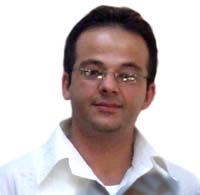


By: Abdul Ali Faiq
A New Strategic Approach Towards Afghanistan’s Future
Wednesday February 4th, 2007 11:42 PM
The Senlis Council with collaboration of the International Institute for Strategic Studies (IISS) organised and hosted an important symposium, "A Cohesive Strategy for the Future of Afghanistan: Reconciling Counter-Insurgency, Counter-Narcotics and Reconstruction Efforts", on 14th of February 2007 at Arundel Hall, IISS, London. There was a press conference from 9:45 to 10:45am and the main part of program started at 11am and continued till 5:30 pm.
As I reported previously, 30 January 2006, the Senile Council had organised a conference, in the name of “London Conference on Afghanistan Development, security, women's affairs, post-conflict reconstruction, and opium cultivation” last year. But this year, the face of the symposium was entirely different with very important names and figures: General David Richards, Commander of NATO-International Security Assistance Force, General Abdul Rahim Wardak, Minister of Defence, Islamic Republic of Afghanistan (but he was absent), Dr. Patrick Cronin, Director of IISS, Norine MacDonald QC, President and Lead Field Researcher for Afghanistan, Dr. David Kilcullen, Chief Strategist in the Office of the Coordinator for Counterterrorism, US State Department, Ambassador James Dobbins, Director of the International Security and Defence Policy Centre, RAND, Mr Peter Bergen, Senior Fellow at New America Foundation and Ms Elizabeth Kvitashvili, Director, USAID Office of Conflict Management and Mitigation, Mr. Larry Sampler, Senior Fellow, Institute for Defence Analyses and Mr. Jalali, Former interior minister of Afghanistan.
The symposium was basically seeking to make recommendations on how to reconcile the counter-insurgency, counter-narcotics and reconstruction strands of the effort in Afghanistan. Most of the speakers in each session were focusing on countering insurgency and narcotics problematic in Afghanistan. Dr. Patrick Cronin, Director of Studies, IISS said: Taliban, Pakistan, Karzai Government and Corruption are part of our problems in Afghanistan. The next speaker General David Richard, Commander of NATO-International Security Assistance Force said: The weakness of Afghanistan government, the weakness of the Afghanistan National Army, the weakness of Afghanistan National Police are part of our problems in Afghanistan as well. General David Richard also added that Karzai is acting like a chief of tribes and he is controlling his government by his mobile phone!
Most speakers were trying to show that the insurgency problem is an issue between different afghan tribes along the border, but Mr. Jalali mentioned that it is not a tribal issue and he appealed from International community for more help and support to accelerate the democracy in Afghanistan. He criticized the NGOs in Afghanistan and added that the international community helped a lot but due to lack of an afghan agenda and proper mechanism, the aids and programs were failed.
Unfortunately very little was mentioned about the root causes of the problems in Afghanistan: foreign interference and border problems with Pakistan. These questions were raised by Prof. Lalzad and it was emphasized that as far as the border problem (The Durand Line) is not solved between Afghanistan and Pakistan, the question of Pakistan interference and war will not be stopped in Afghanistan.
The panel also talked about Afghanistan’s reconstruction-pace with Afghan people’s expectations and occupying the hearts and mind of Afghan citizens, but it was hoped that “the words translated to the action”.
Mr. Farid Khan Popal, First Secretary, Embassy of the Islamic Republic of Afghanistan also reported that the government achieved a lot of things that our history has never seen it before. He also added that Pashtons will play a significant role, both nationally and internationally, on two sides of the border. He said that Pakistan is our brother and we have the same common history and culture!
As my personal analysis, the symposium was useful. Now we are happy that the international community wants (but very slowly) to realize and understand the main causes of problems in Afghanistan and wants to rectify their mistakes. We hope that the international community do more with Pakistan to close down the Taliban/insurgency production sites in Pakistan and put pressure upon the Karzai government to recognize the international borders. Otherwise there would not be peace and stability in Afghanistan.
faiqpk@yahoo.com